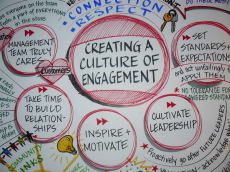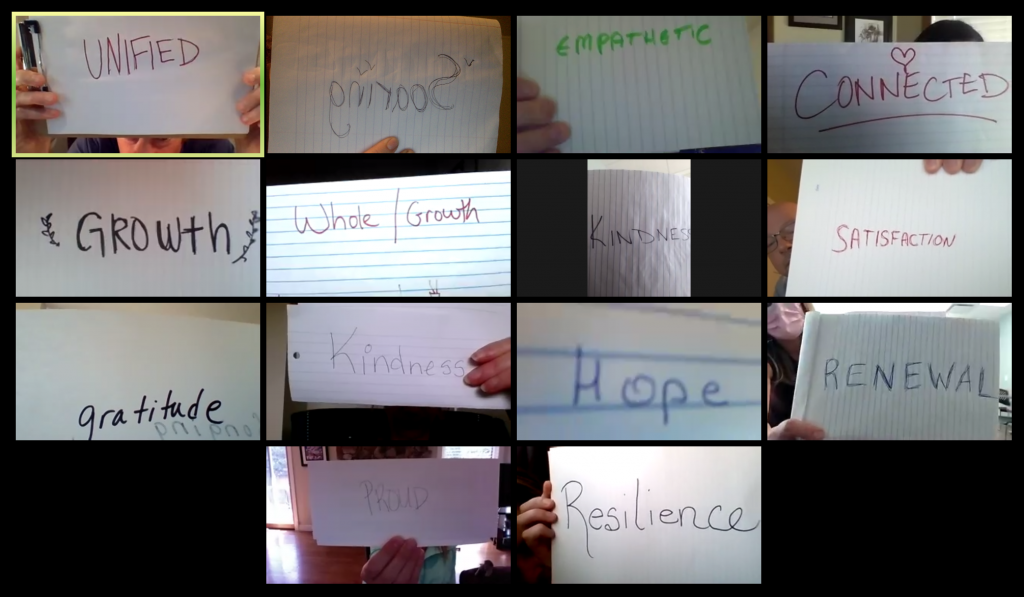How to foster employee engagement and why it is vital for the challenge ahead? (3.5min read)

Now is the most important time to have a fully engaged, locked in and motivated team but there are ongoing challenges. Workforces and teams have spent so much time apart of late with working from home. Motivation has dipped from exhaustion, isolation and anxiety going back to work. Similarly there is disillusionment due to the ever-changing landscape of business. It is fair to say that many workforces may be out of alignment with their company’s vision. These concerns are not ideal for employers at a time when employee engagement is vital.
What are the benefits of an employee engagement?
Improvements in Project Success
Employees that feel respected and heard take ownership over the success of individual tasks. In taking this responsibility, they feel personally accountable for the delivery of a goal and the achievement associated. Disengaged employees are typically indifferent to project success as they see their employment as just an income source.

Increase Sales and Brand Awareness
The majority of businesses attribute significant portions of their sales and marketing success to word of mouth and nobody speaks louder than your own employees. Employees are brand ambassadors and promote your business within their communities. A positive work culture and employee engagement leads to the team sharing their stories positively and proudly with their networks far and wide.
Employee Engagement Boosts Productivity
Companies that perform poorly in engagement scores can suffer up to 20% lower productivity according to the Harvard Business Review which is majorly detrimental at a time like this. However, happy, engaged employees are more focussed and willing to go the extra mile for a company that treats them well. A 20% uptick in productivity is the advantage employers need for the year ahead.
Leadership Development
Engaging work environments empowers staff to willingly accept new responsibilities in their roles. A strong sense of loyalty results in team members actively looking at how they can further contribute to success. Positively engaged employees welcome new responsibilities and develop leadership skills which in turn allows for in-house promotion and a reduction of hiring costs.
Better Staff Retention Rates
Staff turnover is costing thousands and sometimes millions for companies each year for a number of reasons. Replacing a team member can cost up to 20% of that employee’s salary as a result of recruitment, training and process integration expenditure. However, by fostering an empowering work atmosphere, staff become loyal and stay with the company longer as they believe the employer has their best interests at heart.

Reduce Sick Days
Sick days cost the Canadian economy $16.6 billion each year but many days off are avoidable. Of the 5 main reasons for sick days, only 1 is actually related to physical illness. The other four are due to disengagement, sick day entitlement culture, financial and work stress. The average employee took up to 10.3 days off work in 2019 increasing steadily since 2015. The numbers are staggering but avoidable by developing a culture where employees feel engaged, protected and respected.
Recruit Better Talent
Engaged workforces typically look to their own networks to fill an open position within their company. Having extra irons in the fire when it comes to recruitment can help create an inside track to hiring the best talents.
Furthermore, potential new talents now have so much access to online reviews they can learn what it is like to work for different companies before even applying. Positive reviews obviously testify that you are a great employer and worth applying to. By creating a positive culture with your current team, you become more attractive to future talent and receive more applications from better candidates.
How to foster employee engagement?
Work on Your Team Culture
Employees who feel detached from the vision of a company tend to have less concern for the project outcomes. Creating a space where each person feels heard and respected significantly promote inclusivity in the workplace culture. The leadership of your company are the ambassadors of your values and culture. Their attitudes and willingness to give a psychologically safe space for employees to understand and commit to the work involved is integral for employees to feel engaged.

Reward Schemes
Employee rewards can be both extrinsic (money, materials or social recognition) or intrinsic (sense of achievement and motivation). Sustained engagement from employees benefits significantly from both. As Canadians typically suffer across the board with financial stress it should be no surprise that employees performance improves significantly with monetary rewards.
As a financial reward is becoming less available in the current climate, the social and intrinsic rewards will play a much bigger role in rewards schemes. Positive employee feedback has been shown to improve performance significantly if it is delivered immediately after the end of a project. The impact of positive feedback decreases rapidly when it is delayed.
Intrinsic rewards are predicated upon the employees being happy at work. Motivated employees take a significant sense of achievement and inner purpose from the successful completion of a task. In a cyclical sense, they are the ones most likely to continue striving for that achievement based on this success.
Plan Time to Connect
Any company that has survived the last few months and kept their employees are an incredible success story. Acknowledging how difficult things have been and the effort it took team to keep going is important. Similar to the success of any significant project, a team benefits with motivational boosts through connection and celebratory time together. If things simply went back to normal with barely any acknowledgement for success, most feel discouraged and overlooked.
Planning connection time with a team building event gives the whole team a chance to reconnect. Teams can motivate themselves and share their experiences furthering your team culture and employee engagement.
If you have any questions on how to bring your team back together feel free to ask. How to align everyone is increasingly important so please reach out to us and ask any questions you might have.

